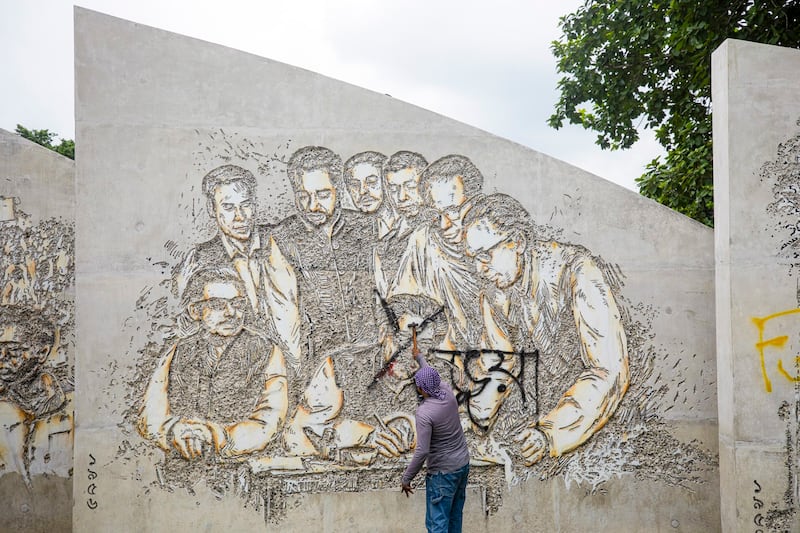Prime Minister Hun Manet warned Cambodians against protesting against the government, citing Bangladesh’s recent demonstrations in its capital that turned into deadly clashes and caused that country’s leader to resign and flee by helicopter earlier this week.
People can exercise freedom of expression – but they shouldn’t use their freedoms to organize mass demonstrations, Hun Manet told a group of businesspeople at an event in Phnom Penh Aug. 2.
“I don’t want to see this type of situation happening in Cambodia,” he said, adding that he aims to prevent instability in Cambodia – “especially in Phnom Penh.”
“Therefore, on behalf of the Royal Government – and witnessed by the diplomatic officers here today – don’t accuse the government of being a dictator if it takes legal action against those who attempt to burn the fire and push for Bangladesh-like demonstrations here in Cambodia,” he said.
Mass protests in Bangladesh began last month against quotas in civil service jobs and spiraled into violence when security forces tried to subdue university students. On Monday, Prime Minister Sheikh Hasina resigned and fled the country.
Hun Manet was named prime minister in August 2023 after his father, Hun Sen, stepped down after decades in power.
Last December, Hun Manet made similar remarks after his first 100 days in office, saying it would be better for critics to call him an authoritarian leader than for people to think he's incapable of leading the country.
‘Color revolution’ fears
Under Hun Sen, Cambodia’s government often cracked down on government critics, using threats or court cases to sideline opponents.
Additionally, Hun Sen often accused foreign governments of trying to foment a "color revolution" – or anti-government protest movement – in Cambodia.
In Phnom Penh, authorities continue to regularly deny permits for public marches or protests, and police have often arrested activists to prevent or stop demonstrations.
Because elections are tightly controlled in Cambodia, the only way to change the government is to demonstrate in the streets, exiled opposition leader Sam Rainsy told Radio Free Asia.
“I believe that what is happening in Bangladesh generates hope for Cambodian people,” he said. “Hun Sen’s regime and the Bangladesh regime are alike. They are dictatorial regimes.”
Hun Sen, 72, retains influence as president of the ruling Cambodian People’s Party and as president of the Senate. He also posts frequently on social media and continues to make public speeches.

Last month, police arrested three activists and one other man who angered Hun Sen by making critical comments in a Facebook video about a longstanding economic cooperation agreement with Vietnam and Laos.
In his speech, Hun Sen warned against making comments about the potential loss of Cambodian territorial integrity to Vietnam – a sensitive political issue that has led to the arrests of numerous opposition activists.
Hun Manet tried to assure people about the 1999 agreement, known as the Cambodia-Laos-Vietnam Triangle Development Area, in an Aug. 3 public appearance.
“The cooperative agreement for the development of the triangle zone will not make us lose our country or our territory. This is a guarantee,” he said at a university graduation ceremony in Phnom Penh.
Translated by Sum Sok Ry. Edited by Matt Reed.
